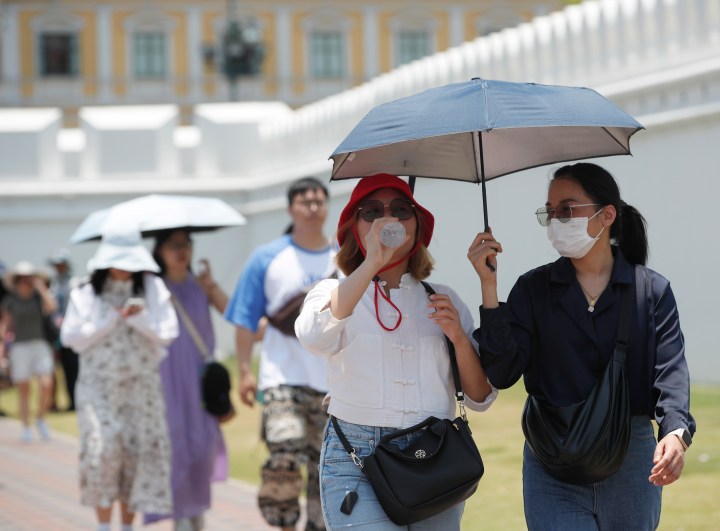Climate
Heat wave in Southeast Asia closes schools, triggers health alerts

MANILA, April 29 (Reuters) - The Philippines has closed schools down and warned of overloading on its power grid, as authorities across Southeast Asia issued a series of health alerts for a crushing and deadly heat wave.
The Philippines’ country’s education ministry cancelled in-person classes at public schools for two days on Sunday.
“We already have reports of high blood pressure and dizziness, and fainting for pupils and teachers in the past days,” Benjo Basas, chairperson of Teachers’ Dignity Coalition, a group of educators, told DWPM radio station.
Temperatures in the Philippines are forecast to reach 37 degree Celsius (98.6 degrees Fahrenheit) in the next three days, with many classrooms crowded and without air conditioning.
The country’s weather agency said the heat index – the actual temperature felt by the body to include relative humidity – is expected to remain at a record 45 degrees Celsius (113° Fahrenheit), in the range which it classes as “dangerous” as conditions can trigger heat stroke from prolonged exposure.
The heat wave is also putting pressure on power supplies on the main island of Luzon, which accounts for three-quarters of economic output, with reserves thinning after 13 power plants had shut down earlier this month, the Philippines’ grid operator said in a statement.
In Thailand, temperatures are forecast to surpass 40 degrees in Bangkok and the country’s central and northern regions with the meteorological agency advising people to avoid being outdoors for extended periods.
Temperatures soared to 44.2 degrees Celsius in the northern city of Lampang on April 22, with the meteorological department saying on Monday it expects the extreme heat will continue this week.
In the past month, 30 people have died from heat stroke, data from Thailand’s health ministry showed.
DEHDRATION, HEAT SHOCK
People are seeking respite from the heat in air-conditioned shopping malls in Vietnam’s business hub Ho Chi Minh City, state media reported, with the country’s national weather agency warning of risks of forest fires, dehydration, and heat shock.
Maximum temperatures measured in several parts of northern and central Vietnam ranged from 40.2 and 44.0 degree Celsius the agency said on Sunday, adding that temperatures won’t subside until Wednesday.
Vietnam’s state electricity company has also urged consumers to refrain from overworking their air conditioning units, warning that electricity consumption has reached record highs in the recent days.
Malaysia meteorological department issued hot weather warnings on Sunday for 16 areas that have recorded temperatures between 35 and 40 degrees (95 to 104 degrees Fahrenheit) for three consecutive days.
A total of 45 cases of heat-related illnesses have been reported in the country as of April 13, the health ministry said, without specifying when it began tracking the cases. Two deaths due to heat stroke have been reported, the ministry said in a statement.
In the neighbouring city state of Singapore, the meteorological service said the country’s temperatures could soar higher in 2024 than last year, which was Singapore’s fourth-warmest year since records began in 1929.
Singapore’s hottest day recorded was May 13 last year when the highest daily maximum temperature hit 37 degrees Celsius.
Since last month some schools have relaxed rules on uniforms to allow students to wear more comfortable physical education attire amid the persistent heat.
Meanwhile, warmer temperatures in Southeast Asia’s most populated nation of Indonesia are driving a surge in cases of dengue fever, a mosquito-borne infection, with cases more than doubling to 35,000 from 15,000 a year earlier, the health ministry has said.
The El Nino weather pattern has prolonged the dry season and hotter temperatures have accelerated the mosquito lifecycle, Indonesian health ministry spokesperson Siti Nadia Tarmizi told state news agency, Antara.
(Reporting by Neil Jerome Morales in Manila; Panarat Thepgumpanat in Bangkok, Khanh Vu in Hanoi, Xinghui Kok in Singapore, Danial Azhar in Malaysia and Kate Lamb in Jakarta; Editing by John Mair and Raju Gopalakrishnan)




















Comments - Please login in order to comment.